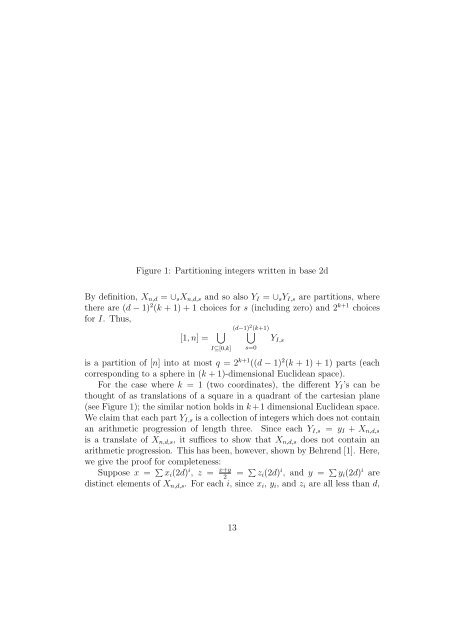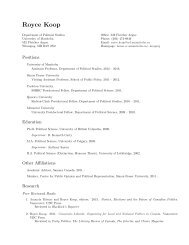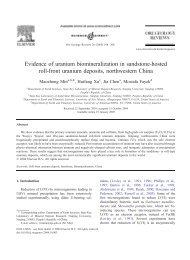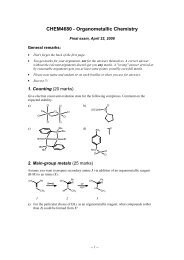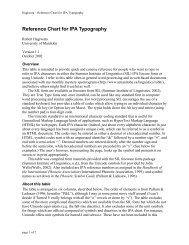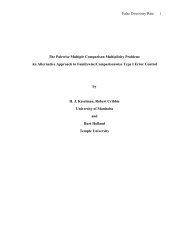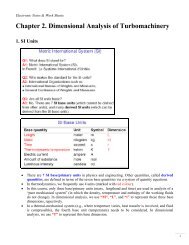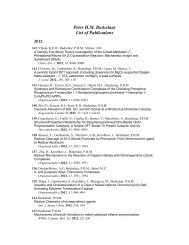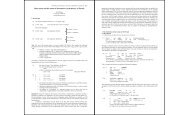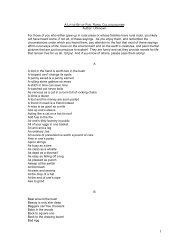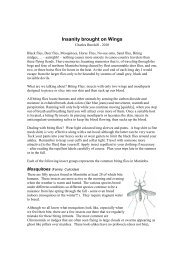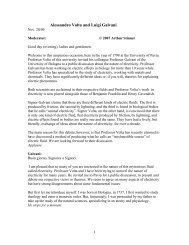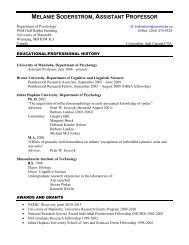Extremal problems for affine cubes of integers - University of Manitoba
Extremal problems for affine cubes of integers - University of Manitoba
Extremal problems for affine cubes of integers - University of Manitoba
You also want an ePaper? Increase the reach of your titles
YUMPU automatically turns print PDFs into web optimized ePapers that Google loves.
Figure 1: Partitioning <strong>integers</strong> written in base 2d<br />
By definition, Xn,d = ∪sXn,d,s and so also YI = ∪sYI,s are partitions, where<br />
there are (d − 1) 2 (k + 1) + 1 choices <strong>for</strong> s (including zero) and 2k+1 choices<br />
<strong>for</strong> I. Thus,<br />
[1, n] = <br />
I⊆[0,k]<br />
(d−1) 2 (k+1)<br />
<br />
is a partition <strong>of</strong> [n] into at most q = 2k+1 ((d − 1) 2 (k + 1) + 1) parts (each<br />
corresponding to a sphere in (k + 1)-dimensional Euclidean space).<br />
For the case where k = 1 (two coordinates), the different YI’s can be<br />
thought <strong>of</strong> as translations <strong>of</strong> a square in a quadrant <strong>of</strong> the cartesian plane<br />
(see Figure 1); the similar notion holds in k +1 dimensional Euclidean space.<br />
We claim that each part YI,s is a collection <strong>of</strong> <strong>integers</strong> which does not contain<br />
an arithmetic progression <strong>of</strong> length three. Since each YI,s = yI + Xn,d,s<br />
is a translate <strong>of</strong> Xn,d,s, it suffices to show that Xn,d,s does not contain an<br />
arithmetic progression. This has been, however, shown by Behrend [1]. Here,<br />
we give the pro<strong>of</strong> <strong>for</strong> completeness:<br />
Suppose x = xi(2d) i , z = x+y<br />
2 = zi(2d) i , and y = yi(2d) i are<br />
distinct elements <strong>of</strong> Xn,d,s. For each i, since xi, yi, and zi are all less than d,<br />
13<br />
s=0<br />
YI,s


